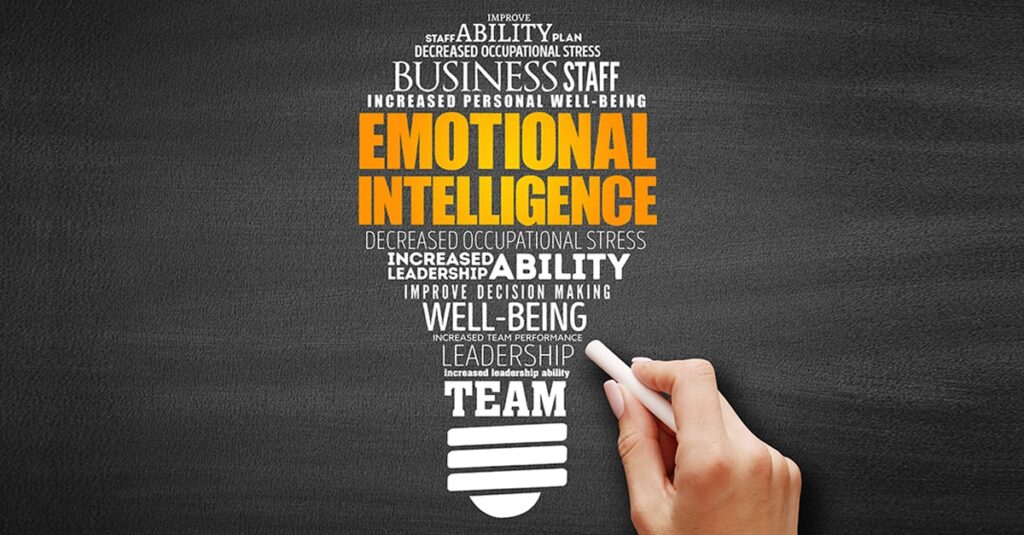In the realm of leadership, technical skills and expertise often take the spotlight. However, there is another critical factor that separates exceptional leaders from the rest: emotional intelligence. Emotional intelligence can be defined having the ability to recognize, understand, and manage one’s own emotions and the emotions of others. In this article, we delve into the importance of emotional intelligence in leadership, exploring its impact on team dynamics, decision-making, and overall organizational success. So, let’s explore the techy side of emotional intelligence and its transformative power in the realm of leadership.
Contents
Understanding Emotional Intelligence
Emotional intelligence encompasses a range of skills and competencies that enable leaders to navigate and influence the emotional landscape of their teams. These skills include self-awareness, self-regulation, empathy, social skills, and motivation. Leaders with high emotional intelligence can effectively communicate, inspire, and motivate their team members, fostering a positive and productive work environment.
One of the key advantages of emotional intelligence in leadership is its ability to enhance team dynamics. Leaders with strong emotional intelligence create a culture of trust, open communication, and collaboration. By comprehending and reacting to the emotions of team members, leaders can foster stronger relationships and create a feeling of belonging and psychological safety. This, in turn, leads to increased engagement, higher levels of motivation, and improved team performance.
Empathy: The Secret Weapon
Empathy, a fundamental component of emotional intelligence, plays a pivotal role in effective leadership. Empathetic leaders have the capacity to understand and share the feelings and perspectives of others. This allows them to connect with their team members on a deeper level, providing support, guidance, and understanding. Empathy also enables leaders to anticipate and address potential issues, manage conflicts, and create a more inclusive and diverse work environment.
Leaders are constantly faced with decision-making challenges, and emotional intelligence can significantly impact the quality and outcomes of these decisions. Emotionally intelligent leaders are able to assess and manage their own emotions, avoiding impulsive or rash decisions driven by anger or frustration. They also consider the emotional implications of their decisions on others, balancing logic with empathy. This results in more thoughtful and effective decision-making, with a stress on the well-being of the team and the organization as a whole.
Leadership can be demanding and stressful, but emotional intelligence can help leaders navigate these challenges with resilience. Emotionally intelligent leaders are equipped with self-regulation skills, allowing them to manage their own stress, stay calm under pressure, and make rational decisions. They also acknowledge the significance of self-care and prioritize their own well-being, setting an example for their team members. By encouraging a healthy work-life balance and supporting the well-being of their team, emotionally intelligent leaders create a more sustainable and positive work environment.
Cultivating Emotional Intelligence as a Leader
Developing and cultivating emotional intelligence is an ongoing journey. Here are some strategies for leaders to enhance their emotional intelligence:
- Self-Reflection: Take time to reflect on your own emotions, triggers, and behavioral patterns. Understand how your emotions impact your interactions and decision-making.
- Active Listening: Practice active listening to truly understand the perspectives and emotions of others. Engage in empathetic conversations, and be present and attentive when communicating with your team.
- Seek Feedback: Actively seek feedback from your team members and peers to gain insights into your emotional intelligence and areas for improvement. Be open to constructive criticism and commit to personal growth.
- Develop Empathy: Invest in developing your empathy skills by putting yourself in others’ shoes and trying to understand their experiences and emotions. Practice empathy in your daily interactions.
- Emotional Regulation: Learn techniques to manage and regulate your emotions, such as deep breathing, mindfulness, or seeking support from a mentor or coach. This will help you remain composed and make rational decisions even in challenging situations.
Conclusion
Emotional intelligence is a critical ingredient in effective leadership. It enhances team dynamics, improves decision-making, and cultivates a positive work environment. By developing and harnessing emotional intelligence, leaders can build strong connections with their team members, inspire and motivate them, and lead their organizations to success. So, embrace the techy side of emotional intelligence and unlock its transformative power in your leadership journey.



